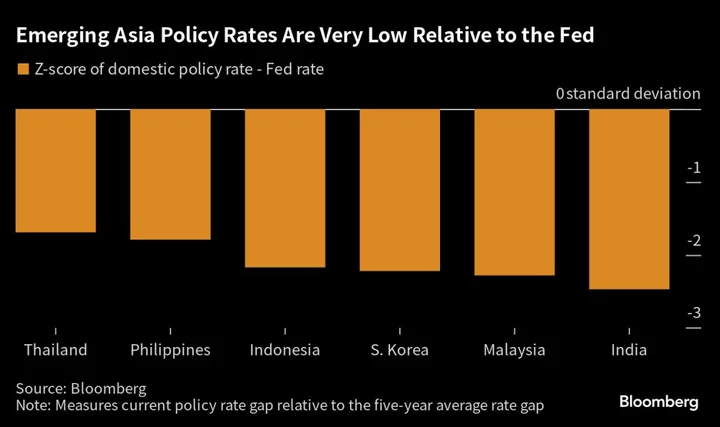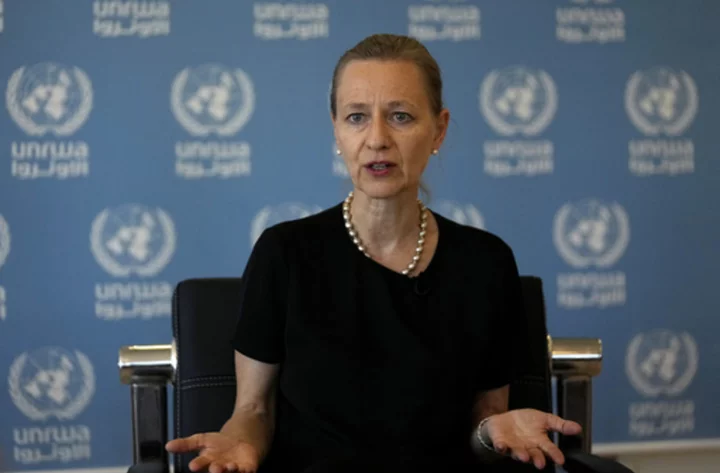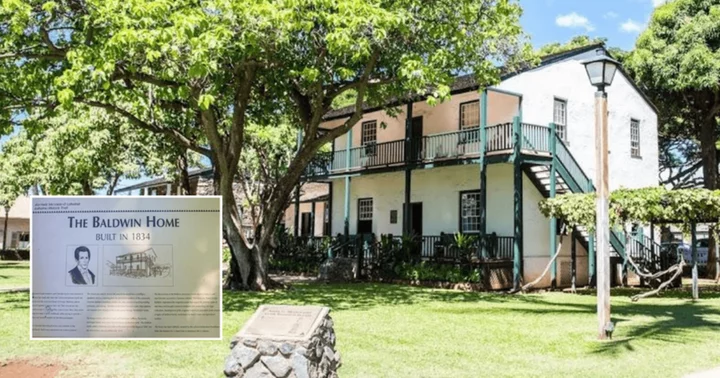Southeast Asian central banks are using tools other than rate hikes to defend their currencies against the surging dollar as bets on higher-for-longer Federal Reserve rates take hold.
Indonesia is keeping a tight leash on liquidity by selling bills while Malaysia’s interbank rate has risen to the highest since July. The shift comes despite earlier calls for peak rates in Southeast Asia as the threat of food and energy-related inflation pressures as well as elevated Fed rates spur caution.
“We expect central banks across the region to continue using a combination of liquidity tightening and intervention to lean against further depreciation in their currencies against the dollar,” said Abhay Gupta, strategist at Bank of America in Singapore. Southeast Asian central banks are becoming more tolerant of “pseudo tightening,” he added.
The rate differential between benchmarks from Southeast Asia and the US has continued to widen as central banks in Indonesia, the Philippines and Malaysia paused rate increases in the first half of the year. Malaysia’s benchmark rate is now at a 250-basis point discount to the upper bound of the Fed fund rate, which is a record gap. It is also 2.3 standard deviations below the five-year rate differential. The same gauge for Indonesia, the Philippines and Thailand stands at -2.2, -1.8 and -1.7, respectively.
Despite the wide rate gap, Bank Indonesia has so far refrained from signaling rate hikes. It has instead started selling so-called SRBI securities or notes with tenors of 6-, 9- and 12-months to attract foreign inflows and reduce the reliance on the benchmark rate, which if tightened too much may hurt the economy.
It’s not just Indonesia, central banks in Malaysia and the Philippines are also using bill sales to tighten liquidity and drive rates higher, said Gupta. The three-month Kuala Lumpur Interbank Rate has risen to 3.57%, the highest since July 13. Bangko Sentral ng Pilipinas’ 56-day bill received an average yield of 6.7191% on Sept. 22, the highest since the Aug. 25 sale.
The BSP governor said on Tuesday if risks from energy and transport prices materialize, the central bank may increase borrowing costs by 25 basis points at the Nov. 16 meeting or earlier. The Thai central bank hiked its key rate by 25-basis points to a 10-year high of 2.5% on Wednesday while signaling upside risk to inflation.
September inflation releases from Indonesia, Philippines and Thailand due next week will be watched closely for any signs of a pickup in price pressures.
(Updates upcoming inflation releases in the final paragraph)









